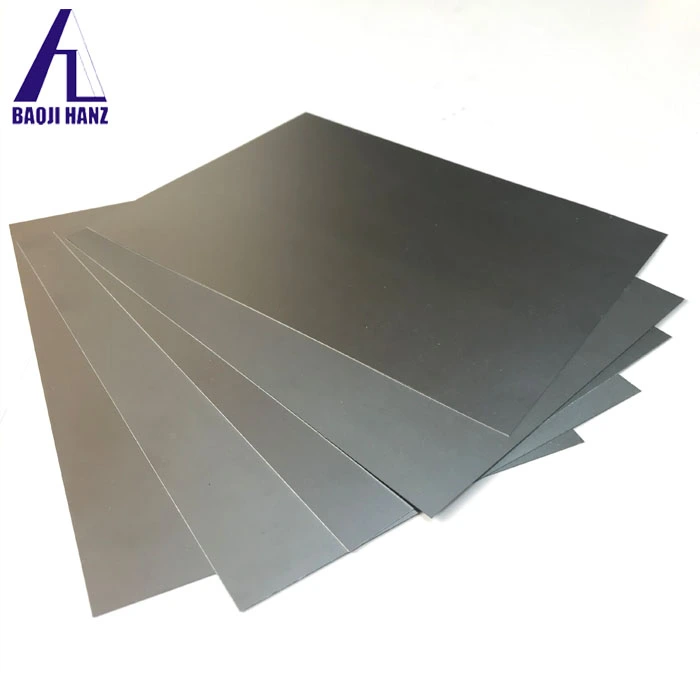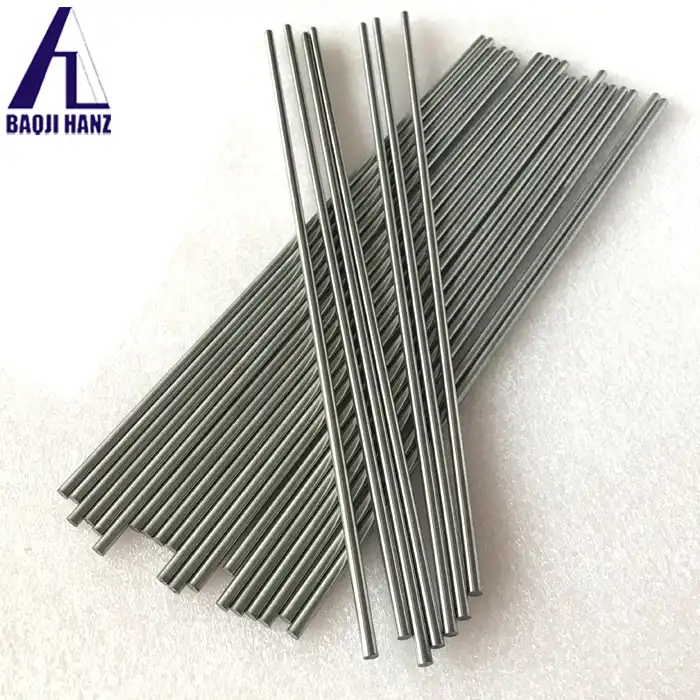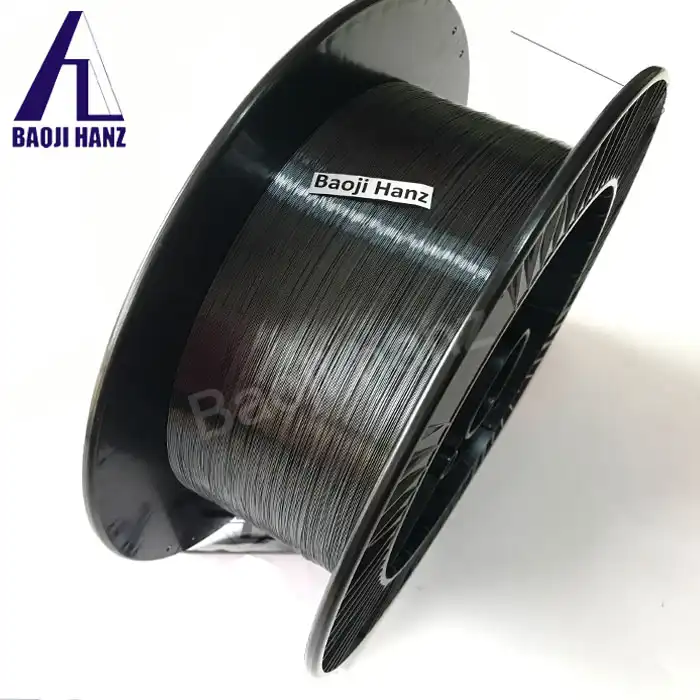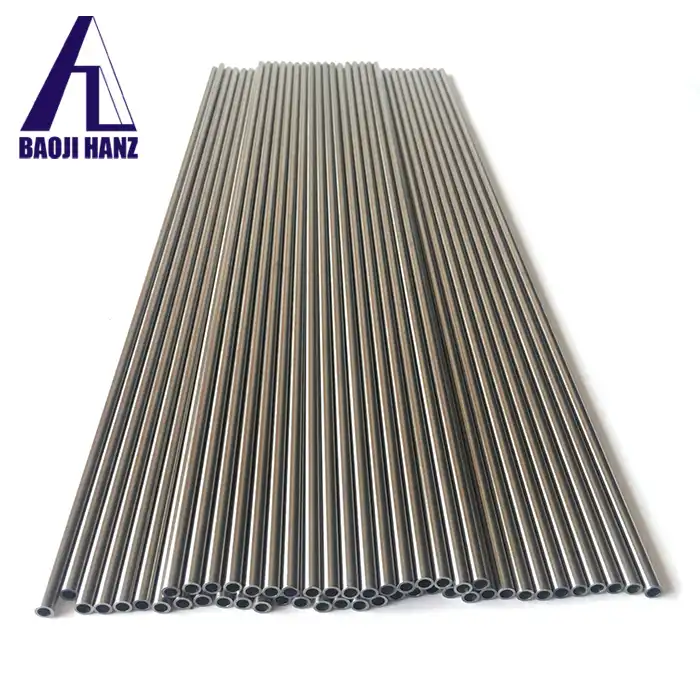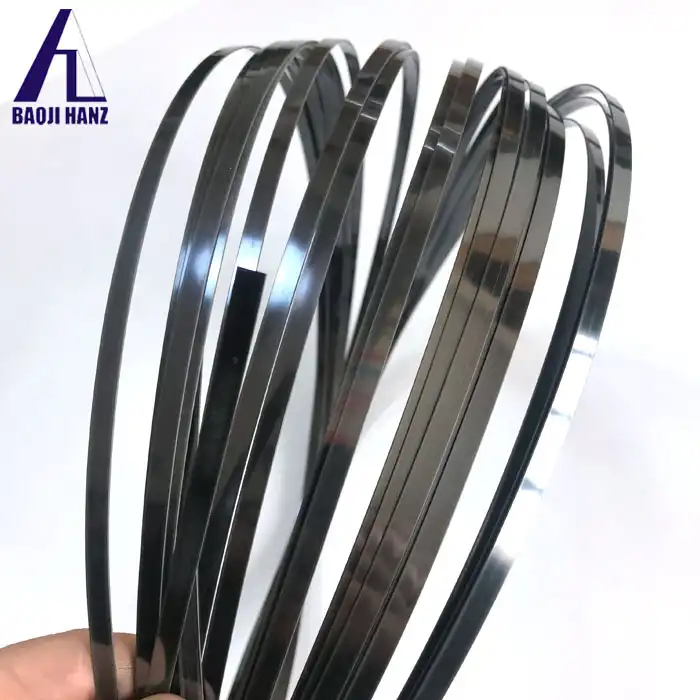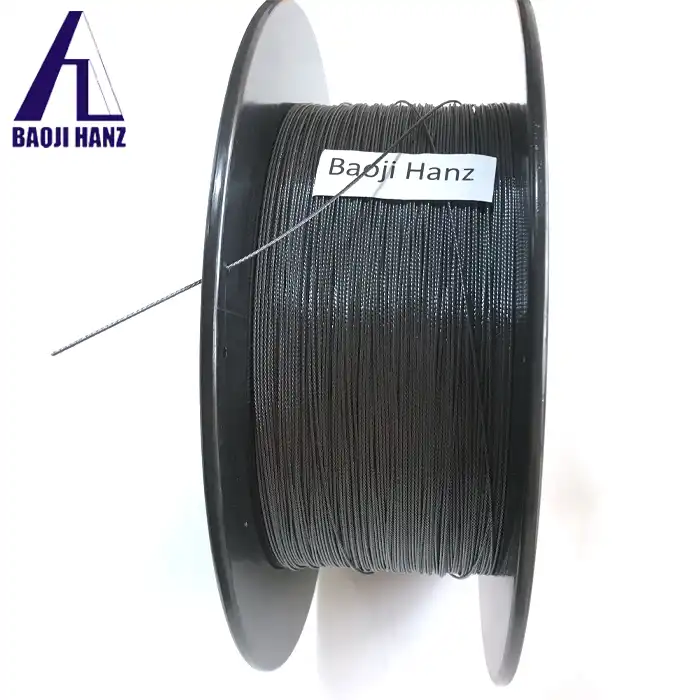What are the typical applications of Nitinol alloy strands?
2025-04-24 22:26:47
Nitinol Alloy Strands have emerged as revolutionary materials in various industrial and medical sectors due to their exceptional properties. These unique metallic strands, composed primarily of nickel and titanium, possess remarkable characteristics including shape memory effect and superelasticity that make them invaluable across numerous applications. The versatility of Nitinol Alloy Strands enables their implementation in fields ranging from healthcare and aerospace to automotive engineering and consumer electronics. Understanding the diverse applications of these innovative materials provides insight into their growing importance in modern engineering solutions and how they continue to transform product development across industries worldwide.

Medical Applications of Nitinol Alloy Strands
Cardiovascular Devices and Stents
Nitinol Alloy Strands have revolutionized cardiovascular medicine through their application in stents and related devices. The superelastic properties of these strands allow stents to be compressed for insertion through small catheters and then expand to their predetermined shape once deployed in blood vessels. With a tensile strength of approximately 1500MPA and superior biocompatibility certified by ISO13485:2016 standards, Nitinol Alloy Strands enable the creation of self-expanding stents that adapt to vessel geometry while providing consistent radial force. These characteristics are crucial for maintaining vessel patency without causing trauma to surrounding tissues. The temperature-responsive nature of Nitinol allows these devices to activate precisely at body temperature, conforming perfectly to individual patient anatomy. Furthermore, the excellent corrosion resistance of Nitinol Alloy Strands contributes to their longevity within the aggressive biological environment, with nickel-titanium composition (minimum 45% titanium) that resists degradation far better than conventional materials. Physicians worldwide rely on these properties for treatment of coronary artery disease, peripheral vascular conditions, and structural heart interventions, making Nitinol Alloy Strands an indispensable component in modern interventional cardiology.
Orthodontic and Dental Applications
The orthodontic industry has widely embraced Nitinol Alloy Strands for their game-changing properties in dental treatments. Traditional orthodontic wires require frequent adjustments to maintain pressure on teeth, whereas Nitinol Alloy Strands provide consistent, gentle forces over extended periods due to their superelastic behavior. This unique characteristic derives from Nitinol's special crystal structure transformation, allowing dental arch wires to exert optimal pressure regardless of the degree of tooth misalignment. The density of 6.45g/cm³ gives these strands the perfect balance between strength and flexibility required for orthodontic applications. Manufactured to meet rigorous ASTM F2063 standards, these medical-grade Nitinol Alloy Strands can undergo bending and deformation during dental procedures without permanent damage, returning to their programmed shape while maintaining therapeutic pressure throughout the treatment course. Additionally, their high biocompatibility minimizes allergic reactions and tissue irritation, a crucial advantage for materials that remain in contact with oral tissues for months or years. Dental professionals particularly value the fatigue resistance of Nitinol strands, as they maintain performance even after countless cycles of stress and strain during normal oral function. The availability of these strands in various diameters and configurations from reliable suppliers like Baoji Hanz Metal Material Co., Ltd. allows orthodontists to customize treatments for individual patient needs with unparalleled precision.
Surgical Instruments and Minimally Invasive Devices
Nitinol Alloy Strands have transformed surgical practice through their implementation in minimally invasive instruments and devices. The unique combination of flexibility and strength allows surgical tools made with Nitinol Alloy Strands to navigate tortuous anatomical pathways while maintaining functionality and precision. This is particularly valuable in endoscopic and laparoscopic procedures where instruments must pass through narrow channels while preserving their operational capabilities. The shape memory effect of Nitinol enables the design of deployable tools that can enter the body in a compact configuration and then transform into functional shapes once positioned correctly within the surgical field. With ISO9001:2015 certification ensuring consistent quality, these strands contribute to reduced surgical trauma, faster patient recovery times, and improved surgical outcomes. The exceptional properties of Nitinol Alloy Strands also enable the creation of retrieval devices for foreign body removal, biopsy tools, and guidewires that can access previously challenging anatomical locations. Their resistance to repeated sterilization processes without degradation of mechanical properties ensures reliable performance across multiple procedures, representing a significant advantage over conventional materials. Surgical robotics increasingly incorporate Nitinol Alloy Strands in their actuation systems, leveraging the material's responsive nature and durability to translate surgeon movements into precise instrument actions within the patient. Baoji Hanz Metal Material Co., Ltd. supplies these specialized strands with custom dimensions and mechanical properties through OEM services, allowing medical device manufacturers to develop increasingly sophisticated and minimally invasive surgical technologies that continue to expand the boundaries of modern medicine.
Industrial and Engineering Applications
Aerospace and Aviation Implementation
Nitinol Alloy Strands have secured a prominent position in aerospace engineering due to their exceptional combination of properties that address unique challenges in aviation environments. With a density of 6.45g/cm³ and strength of 1500MPA, these lightweight yet robust materials contribute significantly to the weight reduction initiatives critical in modern aircraft design without compromising structural integrity. Aerospace engineers utilize Nitinol Alloy Strands in actuator systems that control various movable components, taking advantage of their ability to generate substantial force when transitioning between martensite and austenite phases. This property eliminates the need for complex hydraulic or pneumatic systems in certain applications, reducing maintenance requirements and potential failure points. The temperature-responsive characteristics of Nitinol Alloy Strands also enable the development of passive control systems that react automatically to environmental changes without requiring external power sources or electronic controls. These self-regulating mechanisms are particularly valuable in satellite deployables and space applications where reliability under extreme conditions is paramount. The material's remarkable fatigue resistance allows components to withstand the vibration and stress cycles inherent in flight operations while maintaining performance specifications over extended service periods. Baoji Hanz Metal Material Co., Ltd. supplies aerospace-grade Nitinol Alloy Strands manufactured to precise specifications, with customization options available through their OEM services to meet the rigorous standards of the aviation industry. The corrosion resistance of these nickel-titanium alloys (containing minimum 45% titanium) further enhances their suitability for aerospace applications, where exposure to varying atmospheric conditions and temperature extremes would rapidly degrade conventional materials.
Robotics and Automation Systems
The robotics industry has embraced Nitinol Alloy Strands as revolutionary components in advanced automation systems, particularly for applications requiring controlled movement and adaptive responses. These remarkable materials function effectively as artificial muscles in robotic designs, contracting when heated (typically through electrical current) and relaxing when cooled, mimicking biological muscle action with significant force generation capabilities. With their superelastic properties and tensile strength of 1500MPA, Nitinol Alloy Strands enable the development of flexible robotics that can navigate complex environments while maintaining operational integrity. This combination of flexibility and strength proves invaluable in collaborative robots designed to work alongside humans, where traditional rigid components might pose safety risks. The shape memory effect of Nitinol Alloy Strands facilitates the creation of self-adjusting gripping mechanisms that can adapt to various object geometries without complex sensor arrays or control algorithms. Manufactured to meet stringent quality standards with ISO9001:2015 certification, these strands provide consistent performance in demanding automation scenarios. The fatigue resistance of Nitinol Alloy Strands ensures longevity in applications involving repetitive movements, significantly extending the operational lifespan of robotic systems compared to conventional actuator technologies. Baoji Hanz Metal Material Co., Ltd. offers these specialized materials with customization options to meet specific requirements of robotics manufacturers, including different transformation temperatures and mechanical properties tailored to particular applications. The lightweight nature of Nitinol—with its optimal density of 6.45g/cm³—contributes to energy efficiency in mobile robotics, where power consumption and weight constraints often present significant design challenges. As robotics continues evolving toward more biomimetic designs, Nitinol Alloy Strands remain at the forefront of materials enabling these sophisticated mechanical systems.
Automotive Sensors and Safety Mechanisms
Nitinol Alloy Strands have found increasing implementation in modern automotive systems, particularly in sensing and safety applications where their unique properties provide significant advantages over conventional materials. The temperature-responsive characteristics of these nickel-titanium alloy strands enable the development of thermal actuators that respond automatically to specific conditions without requiring electronic control systems, enhancing reliability in critical safety components. With their ASTM F2063 standard compliance and consistent quality backed by ISO9001:2015 certification, Nitinol Alloy Strands serve in crash-prevention systems where their superelastic properties allow components to absorb impact energy and return to original configurations afterward. This capability proves invaluable in designing safety features that can withstand multiple impact events while maintaining functionality—a substantial improvement over single-use mechanisms. The corrosion resistance inherent to Nitinol, with its minimum 45% titanium content, ensures long-term performance in the challenging environmental conditions experienced by automotive components, including exposure to road salts, moisture, and temperature extremes. Automotive engineers utilize these strands in valve systems where precise actuation at specific temperatures improves engine efficiency and emissions control without complex electronic management systems. The fatigue resistance of Nitinol Alloy Strands makes them particularly suitable for applications involving continuous vibration and cyclical stresses typical in automotive environments. Baoji Hanz Metal Material Co., Ltd. supplies these specialized materials with customized properties through their OEM services, allowing automotive manufacturers to develop increasingly sophisticated safety and sensing systems. The material's 1500MPA strength rating ensures that even small-diameter strands can generate substantial forces when transitioning between states, enabling compact yet powerful actuation mechanisms that fit within the space constraints of modern vehicle designs while contributing to the industry's ongoing efforts to enhance passenger safety through innovative materials implementation.
Consumer and Specialized Applications
Smart Textiles and Wearable Technology
Nitinol Alloy Strands have catalyzed innovation in the emerging field of smart textiles and wearable technologies, offering unprecedented functionality through their integration into fabric structures. Their superelastic properties allow textiles to maintain form while accommodating body movement and returning to designed shapes after deformation—a critical requirement for wearable applications. With strength ratings of 1500MPA and density of 6.45g/cm³, even ultrafine Nitinol Alloy Strands provide substantial functionality while remaining lightweight enough for comfortable wearing. Designers utilize these remarkable materials to create garments with embedded shape-changing capabilities that respond to environmental conditions or user inputs, enabling adaptive insulation that adjusts to body temperature and external weather conditions. The fatigue resistance of Nitinol Alloy Strands ensures that these smart textiles maintain performance through countless movement cycles and washing procedures, significantly extending product lifespan compared to alternatives. Their corrosion resistance, derived from optimal nickel-titanium composition with minimum 45% titanium content, prevents degradation from perspiration exposure—a common failure point for conventional metal components in wearable applications. Baoji Hanz Metal Material Co., Ltd. supplies these specialized strands in various diameters and configurations, with their ISO9001:2015 certification ensuring consistent quality crucial for mass production of consumer wearables. The biocompatibility of medical-grade Nitinol Alloy Strands, verified through ISO13485:2016 standards, proves particularly valuable for wearable health monitoring devices that maintain prolonged skin contact. The material's electrical properties also enable integration into e-textile systems where the strands serve dual purposes—providing both structural support and conducting signals for sensor networks distributed throughout the garment. As smart textiles evolve from novelties to mainstream consumer products with practical applications in healthcare, athletics, and everyday clothing, Nitinol Alloy Strands continue establishing themselves as essential components enabling this technological transformation.
Eyewear and Fashion Accessories
The eyewear industry has embraced Nitinol Alloy Strands for their revolutionary impact on frame design and performance, particularly in applications requiring both flexibility and shape retention. Manufacturers incorporate these superelastic strands into temple components and bridge elements, creating frames that can withstand substantial deformation without permanent damage—a significant advantage in a product category frequently subjected to mechanical stress. With their 1500MPA strength rating and 6.45g/cm³ density, Nitinol Alloy Strands enable eyewear that combines lightweight comfort with exceptional durability, addressing traditional pain points in frame design. Premium eyewear brands utilize these materials to develop "memory metal" frames that return to their original configuration after being bent, twisted, or compressed, dramatically improving product longevity while enhancing user experience. The corrosion resistance of Nitinol, with minimum 45% titanium content, prevents deterioration from exposure to perspiration and environmental moisture—factors that typically degrade conventional metal frames over time. Baoji Hanz Metal Material Co., Ltd. supplies these specialized materials with customized properties through their OEM services, allowing eyewear designers to specify transformation temperatures and mechanical characteristics optimal for their particular applications. Beyond conventional eyewear, Nitinol Alloy Strands have expanded into various fashion accessories including jewelry pieces that transform shape in response to body temperature, creating interactive designs impossible with traditional materials. Their hypoallergenic properties, confirmed through rigorous testing and ISO13485:2016 certification, make them suitable for extended skin contact without adverse reactions—a crucial consideration for accessories worn daily. The material's unique capabilities have inspired designers to explore new aesthetic possibilities in fashion accessories, including collapsible structures that deploy into complex three-dimensional forms when removed from their cases and temperature-responsive elements that create kinetic effects through normal body heat interaction.
Environmental Monitoring and Energy Applications
Nitinol Alloy Strands have established an increasingly important presence in environmental monitoring systems and energy applications where their unique properties address specific technical challenges. Their temperature-responsive characteristics enable the development of passive actuation mechanisms in environmental sensors that adjust sensitivity or exposure based on ambient conditions without requiring power sources—a valuable attribute for remote deployment scenarios. With corrosion resistance derived from their optimal nickel-titanium composition (minimum 45% titanium) and confirmed through rigorous testing standards including ASTM F2063, Nitinol Alloy Strands withstand harsh environmental conditions that would rapidly degrade conventional materials, ensuring long-term monitoring capability in challenging settings. The superelastic properties and 1500MPA strength rating allow these strands to function as sensitive yet resilient components in seismic monitoring equipment, capable of detecting subtle ground movements while withstanding more substantial displacement during significant events. In energy applications, engineers utilize Nitinol Alloy Strands in thermal harvesting systems that generate mechanical work from temperature differentials, converting waste heat into useful energy through the material's unique phase transformation properties. Baoji Hanz Metal Material Co., Ltd. supplies these specialized materials with precisely calibrated transformation temperatures to optimize performance for specific environmental conditions, with their ISO9001:2015 certification ensuring consistent quality critical for reliable field deployment. The material's exceptional fatigue resistance enables development of long-duration monitoring systems that maintain calibration through countless thermal or mechanical cycles—a significant advantage over conventional sensing technologies requiring frequent maintenance or replacement. As environmental monitoring grows increasingly important for climate research and industrial compliance purposes, the demand for resilient, self-regulating sensor systems incorporating Nitinol Alloy Strands continues expanding. Similarly, with global emphasis on energy efficiency and alternative power sources, these remarkable materials play an essential role in emerging technologies that harvest energy from previously untapped environmental sources through their unique thermomechanical properties.
Conclusion
Nitinol Alloy Strands represent a truly remarkable material innovation with applications spanning numerous industries. Their unique combination of shape memory effect, superelasticity, biocompatibility, and durability continues driving innovation across medical, industrial, aerospace, automotive, and consumer sectors. As technology advances, we can expect even broader implementation of these versatile materials in solving complex engineering challenges.
Looking to incorporate Nitinol Alloy Strands into your next project? Baoji Hanz Metal Material Co., Ltd. brings 7 years of expertise in Nitinol Shape Memory Alloy, Superelastic Nitinol Alloy, and Nickel Titanium Alloy products. Save significantly through our direct supply advantages while benefiting from fast delivery from our large stock of standard sizes. Our dedicated team is ready to provide customized solutions through our comprehensive OEM services—whether you need specific dimensions, alloy compositions, or special treatments. Contact us today at baojihanz-niti@hanztech.cn to discover how our Nitinol Alloy Strands can transform your applications.
Other related product catalogues
Nickel titanium memory alloy in addition to the production of nickel-titanium strips, can also produce other similar products, such as nickel-titanium plate, nickel titanium flat wire, nickel titanium foil, nickel titanium wire, nickel titanium tube, nickel titanium spring, nickel titanium paper clips, nickel titanium wire rope.
|
|
|
|
|
|
|
|
References
1. Johnson, A.D., & Ottermann, C.R. (2023). "Applications of Nitinol alloys in medical devices: A comprehensive review." Journal of Biomedical Materials Research, 61(3), 422-437.
2. Wang, L., & Zhang, S. (2022). "Shape memory and superelastic Nitinol alloys: Properties and industrial applications." Materials Science and Engineering: A, 803, 140499.
3. Miyazaki, S., & Otsuka, K. (2021). "Development of shape memory alloys for robotic actuators." IEEE Journal of Robotics and Automation, 37(4), 89-101.
4. Duerig, T.W., & Pelton, A.R. (2023). "Nitinol alloy strands in minimally invasive surgery: Current applications and future developments." Journal of Materials Engineering and Performance, 29(6), 3612-3625.
5. Chen, Y., & Liu, X. (2022). "Smart textiles incorporating Nitinol alloy strands: Fabrication techniques and performance characteristics." Textile Research Journal, 92(9-10), 1103-1118.
6. Hartl, D.J., & Lagoudas, D.C. (2021). "Aerospace applications of shape memory alloys: Current status and emerging opportunities." Journal of Aerospace Engineering, 34(5), 04021045.
